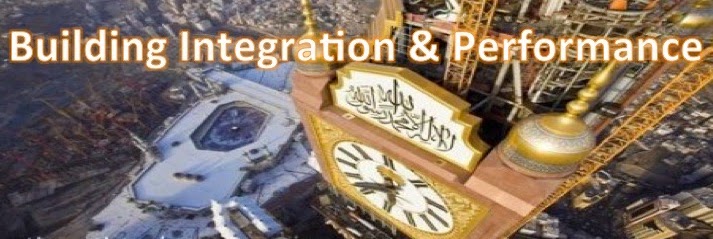Independent Studies Course Outline 2010/11
AP Dr Mohd Zin Kandar & AP Ar Ramli Jamaluddin
OBJECTIVES:
The main purpose of this subject is to widen the thinking horizons of the students into various related subjects of politics, economics, culture, management, construction and technology that might have bearing on the way architecture is considered in the present and the future.
SYNOPSIS:
Students are asked to choose from a list of recommended topics to be studied. Through several meetings and guidance from lecturer in-charge, students are required to prepare a report on a particular aspect of architecture, building design, construction and other related issues in built environment.
LEARNING OUTCOME:
(from student’s perspective)
L.O.1: Students are able to understand current issues in construction industry.
L.O.2: Students are able to attempt to relate current issues with aspects of built environment such as architecture design and construction issues.
L.O.3: Students are able to produce reports on actual building construction process or other related issues critically in view to recommend innovative solution in design and construction.
GENERIC SKILLS ADDRESSED:
Level
Assessed (will be part of the learning outcome)
1. Communication skills
2. Critical Thinking & Problem Solving
3. Team Working
4. Lifelong Learning & Information Management
5. Entrepreneurship Skills
6. Professional Ethics & Morals
7. Leadership Skills
TEACHING METHODOLOGY:
There are no class meetings in this subject. Students are required to work independently and they can contact the lecturer for questions through the telephone or e-mail.
Assessment:
Assessment 1 – weeks 3 = 5 %
Assessment 2 – week 6 = 5 %
Assessment 3 – week 10 = 20 %
Assessment 4 – week 14 = 40 %
Final Assessment (5) – week 15 = 30 %
DETAIL PROGRAMA. LECTURE INPUT1. Building Development Process.
- Client’s Brief.
- Schematic Design.
- Construction Drawings.
- Tender Stage.
- Construction stage.
- As Built Drawing & Commissioning.
2. Issues in Building Development Phase.
- Getting the job.
- Consultants.
- Contractors.
- Building Suppliers.
- Machinery suppliers.
- Manpower/construction workers.
- Dealing with Client / EPU.
- Dealing with intended user of the building.
- Dealing with local authorities.
- Dealing with community nearby the site.
3. Other related issues.
B. PROJECT ASSIGNMENTI. Project Selection.1. Select any building around UTM currently underconstruction.
2. You may study the building through informations or building plan obtain from consultants or client.
II. Research, Data Collection, Documentation, Data analysis & Seminar Presentation.Each group comprise up to 4 students. Each building can be studied by and up to 3 groups. The study has an individual (no. 5 below) and groupwork component (No 1 - 4 below). Tutor will be assisting you throughout the semester, however students are required to organise their task through proper project planning within 15 weeks. Below are components to be included in the study and report:-
1. Background Information.
- Project definition.
- Organisation involved.
- Organisation’s structures
- Type of contract implementations.
2. Pre-contract stage.
- Implementation process.
- Real issues aroused.
- Documentation of the drawings and job carry out.
3. Post-contract stage.
- Implementation process.
- Real issues arise.
4. Detail study on building components and selected construction details
- Identify, observe, analyse and draw some (6-10) construction details.
5. Issues in Construction Phase (Individual - please choose 1 issue).
- Getting the job.
- Consultants.
- Contractors.
- Building Suppliers.
- Machinery suppliers.
- Manpower/construction workers.
- Dealing with Client / EPU.
- Dealing with intended user of the building.
- Dealing with local authorities.
- Dealing with community nearby the site.
- Other related issues.
SUBMISSION REQUIREMENT1 Progress assessment 1- 4 : Power point presentation and/or MS Words.
2 Final assessment (5) : Hard Copy & Softcopy.
WEEK ACTIVITIES1 Introduction of the course
2 Lec Input
3 Site visit
4 Independent work
5 Independent work
6 Tutorial & Progress Presentation
7 Independent work
8 Independent work
9 Semester Break
10 Progress Presentation
11 Independent work
12 Independent work
13 Independent work
14 Interim Progress Presentation
15 Submission
REFERENCES:
1. Uniform Building By Law 1984
2. Mitchell’s Building Series:
- Structures & Fabric Pt 1 & 2; Foster & Harrington
- Materials; Everett
- Finishes; Everett
3. Mat Lazim Zakaria, Bahan & Binaan, DBP, Kuala Lumpur, 1987.
4. Tan Boon Tong (2000) “ Teknologi Binaan Bangunan”. Dewan Bahasa dan Pustaka, Kuala Lumpur
5. Tan Boon Tong (1995) “ Lukisan Binaan Bangunan”. Dewan Bahasa dan Pustaka, Kuala Lumpur
6. GD Taylor (1983) “Materials of Construction”. Construction Press. London and New York
7. Ivor H Seeley (1980) “Building Technology”. MacMillan Press Ltd
8. Edward Allen (1980) “ How Buildings Work. The Natural Order Of Architecture”. Oxford University Press.
9. Lim Jee Yuan (1987). “ The Malay House”. Institut Masyarakat
10. D K Ching & C Adams (2001). “ Building Construction Illustrated” 3rd Ed. John Wiley and Sons.
11. Fred Hall & Roger Greeno (2001). “Building Services Handbook”. Butterworth & Heinemann.
12. European Construction Institute (1995). "Total Project Management" Second Ed., Thomas Telford.
13.Code of Practice for Project Management for Construction and Development 2nd Ed (1996). Longman.
Note: AS A PREREQISIT TO CARRYOUT THE TASK, STUDENTS IS REQUIRED TO GET 'CIDB GREEN CARD'. PLEASE REFER TO MR AHMADON BAKRI 019-7762929 FOR REGISTRATION & TRAINING. THE APPLICATION FORM CAN BE DOWNLOADED FROM www.osh4u.blogspot.com





